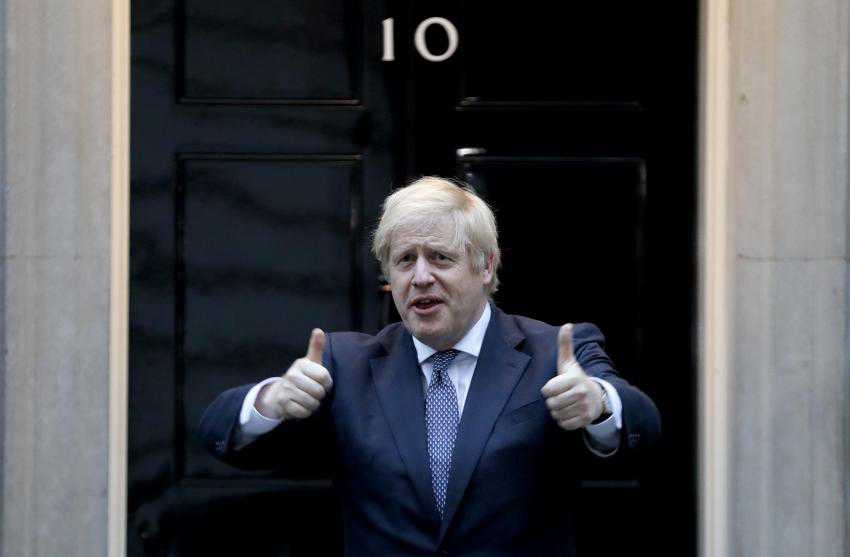Scientists fault UK's pandemic strategy as deaths rise
05 May, 2020

As the coronavirus continues to infect persons across Britain in exactly what will likely grow to be Europe’s worst outbreak, the federal government has come under criticism from scientists, who say it has neglected the fundamentals of epidemic control.
Hundreds of outbreak experts have questioned the UK's pandemic response, ridiculing the government's claim of “following science.”
“There was a feeling of fatalism and I believe the government eliminated containment options which should not have been eliminated,” said Martin McKee, a professor of European public health at the London School of Hygiene and Tropical Medicine. “And today we have to handle the fall-out.”
The fallout includes a death rate which has now reached 28,446. That is merely slightly significantly less than Italy, Europe's worst-hit nation with 28,884 confirmed deaths.
For weeks, the united kingdom was centered on widespread testing, setting itself the goal of conducting 100,000 COVID-19 tests each day by the finish of April. It met the prospective but has failed to keep the number at that level.
Epidemic authorities warned that Britain's overwhelming focus on testing ignored an equally essential factor of outbreak control: the tracking and isolation of contacts of cases.
Allyson Pollock, a public health doctor at Newcastle University said Britain ignored basic World Health Organization guidelines on stopping outbreaks.
“The government put far too much weight on testing and the strategy now seems quite confused,” she said.
That follows an already delayed response to the pandemic. While WHO declared the coronavirus to become a global emergency on January 30, it wasn't until March 5 that Britain made the disease “notifiable,” requiring doctors to report it.
Britain’s department of health said recently it would train 18,000 people to track contacts of cases to monitor the virus' spread, and aimed to keep these things set up by mid-May. Nonetheless it has not released information on how the program will continue to work.
Such insufficient precision, specialists worry, could bring about a devastating second wave of disease.
Still, a few of the UK's leading disease experts have applauded Britain's response. Dr Jeremy Farrar, who heads the Wellcome Trust, said it was correct to concentrate on immediate issues like testing while developing more descriptive future plans.
But David McCoy, a professor of global public health at Queen Mary University of London, said Britain's pandemic response plan has been overly influenced by mathematical models instead of by established outbreak interventions.
“The problem with models is they just produce scenarios predicated on assumptions which may be right or wrong and they don’t tell you list of positive actions,” he said. Britain's lockdown was triggered your day after modelers suggested there could possibly be 250,000 deaths in a best-case scenario.
Some also have questioned the independence of the government’s scientific advisers, especially after it emerged that Prime Minister Boris Johnson’s controversial chief aide, Dominic Cummings, attended meetings of the UK's top scientific advisory committee. Some scientists argued that having political aides attend meetings compromised experts' capability to determine evidence or make tips independently of political considerations.
After declining to create a membership list for its scientific committee, citing the privacy of the scientists involved, the federal government released a list of names Monday, excluding those that asked not to be identified.
The department of health dismissed concerns about the validity of its outbreak strategy and said it's been "guided constantly by the very best scientific advice.”
Efforts to trace contacts as restrictions are being lifted vary drastically among other hard-hit countries including France, Italy, and Spain, with few concrete details about how exactly the virus will be monitored.
Annelies Wilder-Smith, a public health expert at the London School of Hygiene and Tropical Medicine, said it had been troubling that Britain had no plans to eliminate contacts of cases out from the community in specialized facilities, similar from what was done in China and Singapore.
“If you don't isolate contacts who could have the condition, they will just stay in the home and infect their friends and families,” she said.
Most Western countries have up to now declined to consider such interventionist policies, and some experts say their refusal to take action is fueling virus transmission.
Britain's Health Secretary Matt Hancock announced Monday it would commence testing a smartphone application on the Isle of Wight this week, challenging isolated island's 80,000 households acquiring an invitation to download it. He said the app logs details of local phones that likewise have the app. If a user gets symptoms, those other phones will receive an alert and persons will be able to order a coronavirus test.
However the app's success is determined by large swathes of the populace being willing to share their personal data.
“There are always a minefield of problems here,” said Ross Anderson, a cybersecurity expert at the University of Cambridge who was simply consulted by a government group developing the iphone app and called it “unworkable.”
“The (National Health Service) has repeatedly broken its privacy promises whenever it collects data of any value to someone else,” Anderson said.
Other scientists say the UK’s deliberate withdrawal from regular Europe-wide discussions on COVID-19 have further compromised its response.
In March, Britain didn't join an EU-wide program to buy ventilators, though it is eligible to, because the Brexit transition period lasts before end of the entire year. The British government blamed a lost email for the missed opportunity and said it could participate in the future.
Source: japantoday.com
TAG(s):
